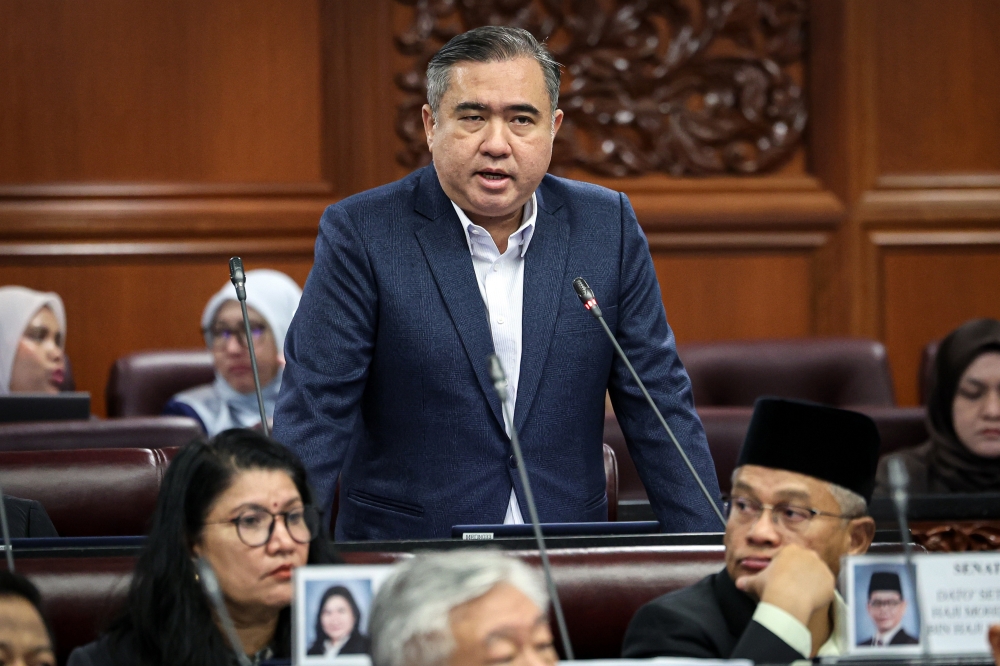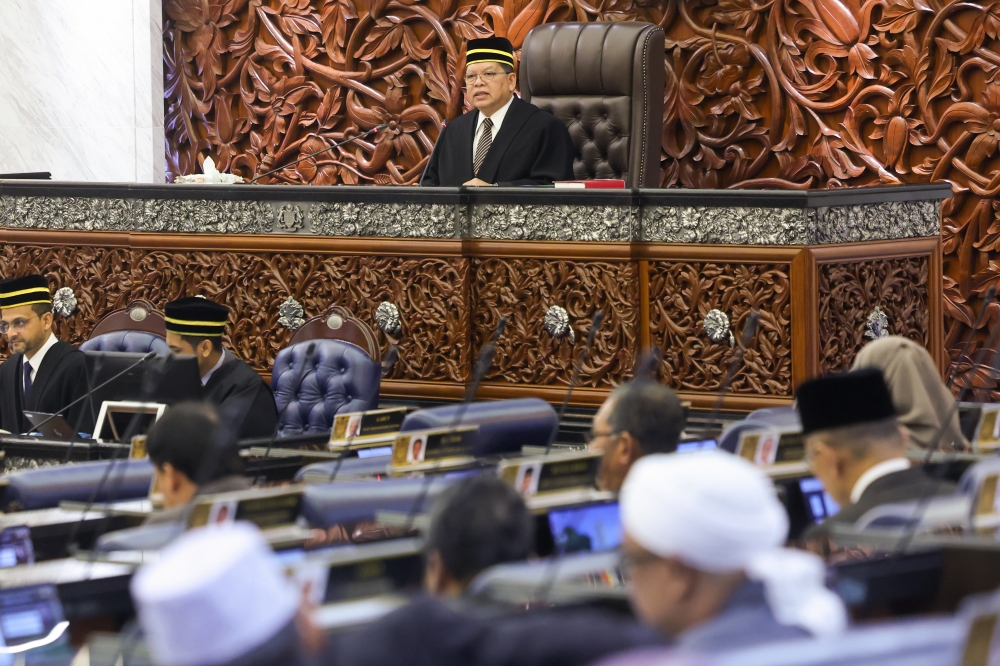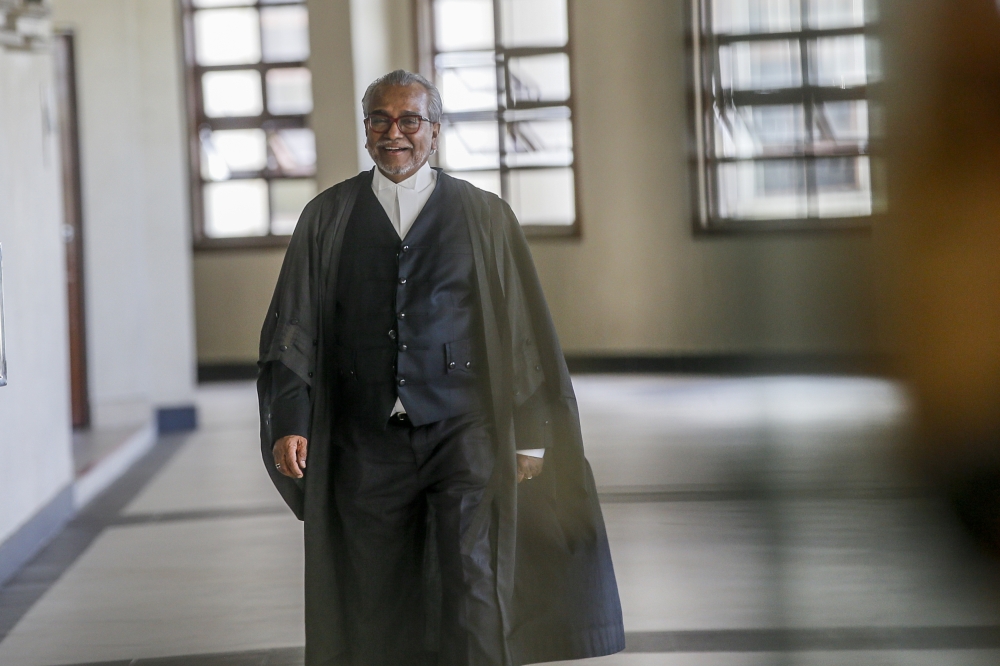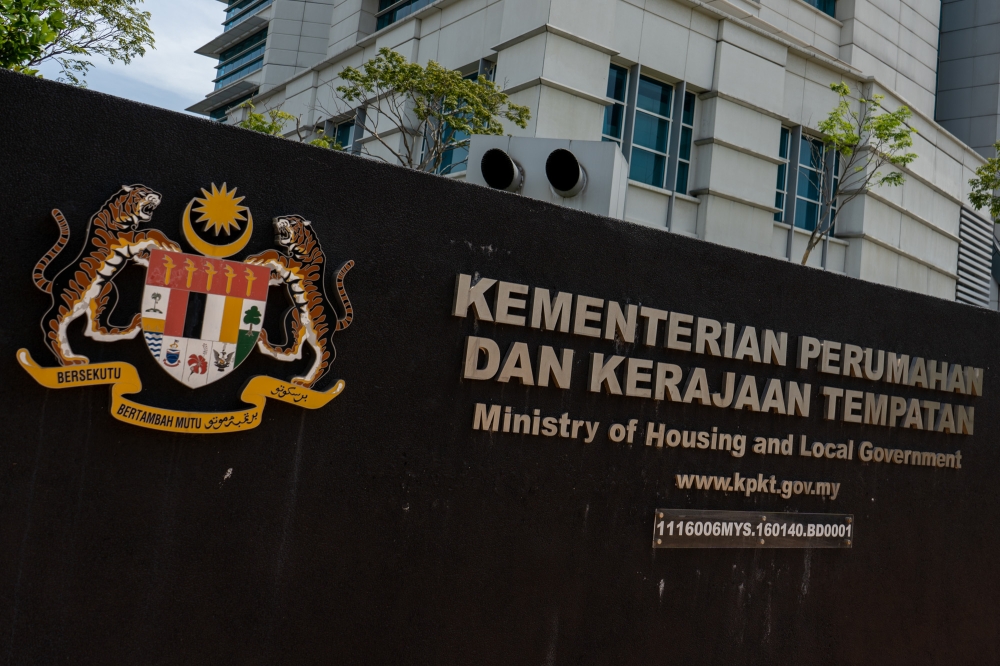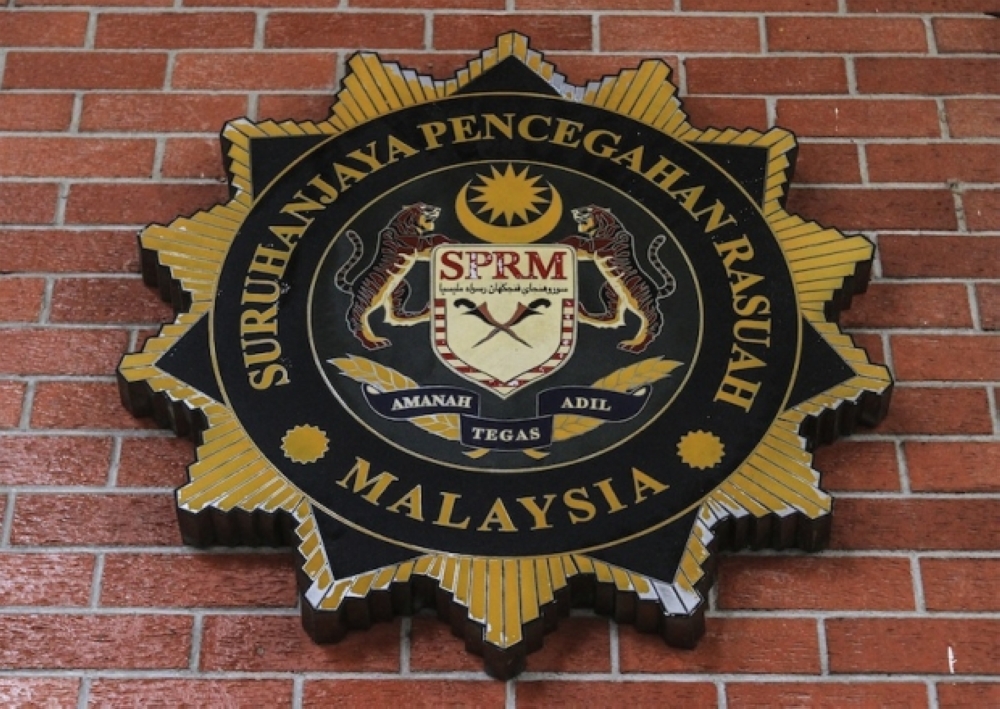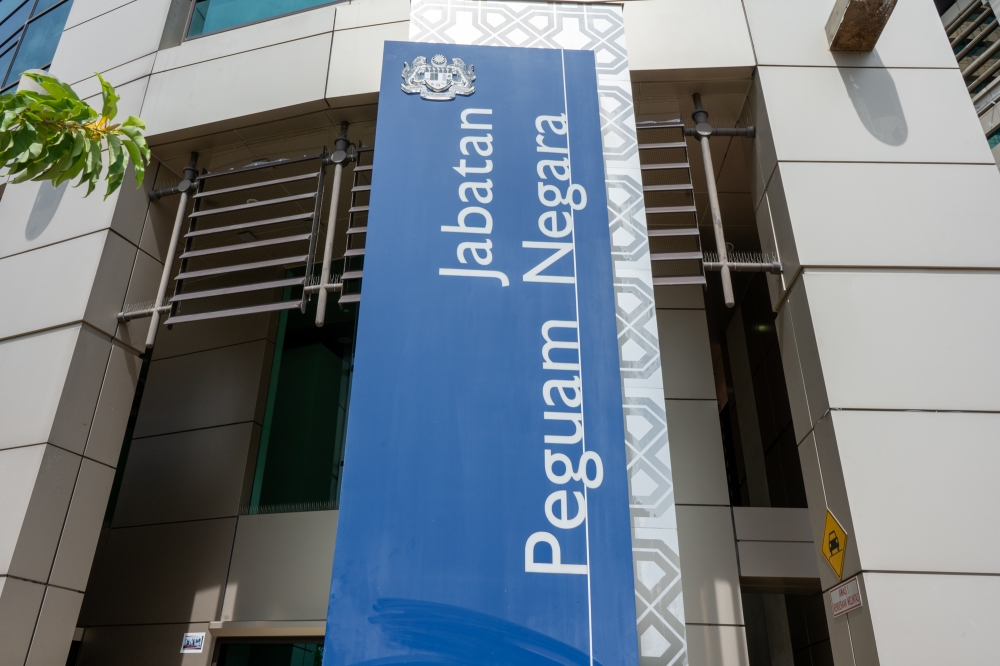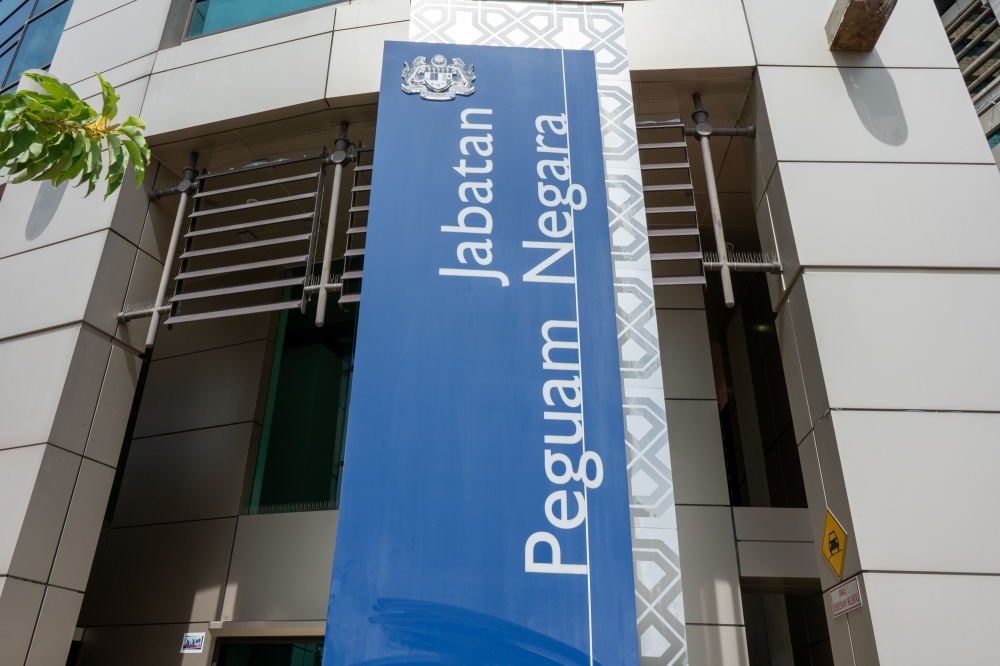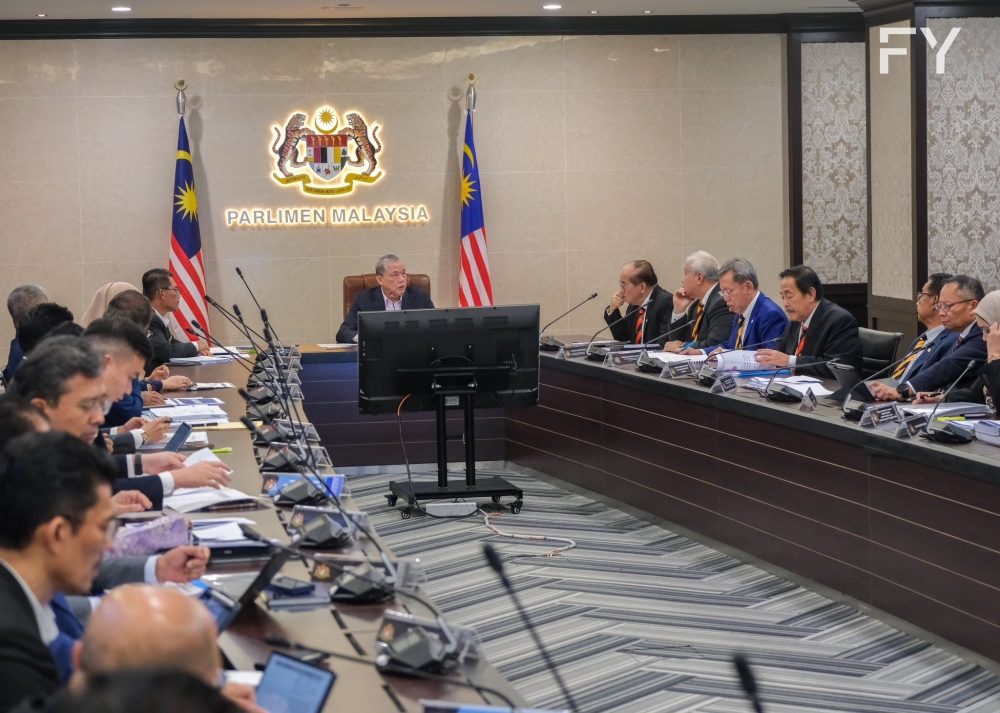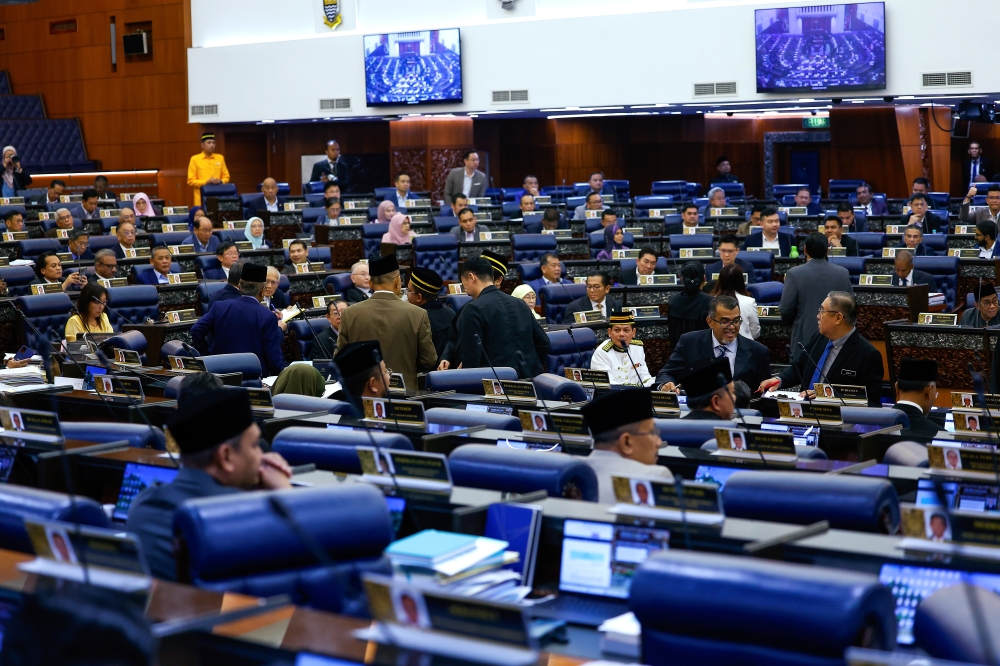KUALA LUMPUR, Jan 30 — DAP’s Iskandar Puteri MP Lim Kit Siang today questioned Umno’s silence over the position of incumbent MACC chief commissioner Tan Sri Azam Baki after Malaysia scored below 50 for the first time in nine years according to Transparency International’s Corruption Perception Index.
According to TI, Malaysia ranked 62nd out of 180 in 2021 — five rungs lower than the previous year after the country scored 48 points in the annual Global Corruption Index (CPI).
Lim said the perceived silence from Umno’s “court cluster” and “minister cluster” was puzzling, since the party’s vice-president Datuk Seri Mohamed Khaled Nordin had claimed in a recent interview that the reform agenda was no longer the Opposition’s domain as Umno was now the outfit pushing for progressive ideas.
The phrase court cluster refers to high-profile Umno leaders who are facing court cases.
“What is the position of the Umno “Court Cluster” and “Ministers Cluster” on Azam Baki?
“How can Umno be fighting for reforms when it is so silent on Azam-gate?” he said in a statement his morning.
Lim then cited former chief justice Tun Abdul Hamid Mohamad, who in a recent statement said both Datuk Seri Ahmad Zahid Hamidi and Datuk Seri Najib Razak must step down as Umno president and Barisan Nasional (BN) adviser respectively if the party intended to shed the taint of corruption linked to these two leaders.
Abdul Hamid was quoted as saying that if Umno and the BN coalition failed to address this matter, it could see the return of a Pakatan Harapan (PH) government in the upcoming Johor state election.
Adding that Abdul Hamid’s remark was akin to hitting the nail on its head, Lim then posed the question to Umno on whether the former’s remark would be taken to heart.
Regulator Securities Commission (SC) had on January 19 said it decided that Section 25(4) of the Securities Industry (Central Depositories) Act 1991 — which only allows share trading accounts to be used by the person benefiting from it or which disallows proxy trading — had not been violated by Azam, as independent evidence from an inquiry showed that Azam had control of and operated his trading account by giving instructions to buy, sell and trade shares from the account.
The SC had launched the investigation after Azam previously publicly declared in a press conference that his share trading account was used by his brother to buy shares ― a move widely perceived as proxy trading by the public.
The stock trading scrutiny on Azam intensified after he admitted in a press conference earlier this month that he had allowed his younger brother, Nasir Baki, to use his stock trading account to buy millions worth of shares in two public-listed companies back in 2015.
Azam denied any wrongdoing, saying the amount has since been transferred to Nasir’s account. However, he has not explained publicly why Nasir had to use his account to buy those shares.

